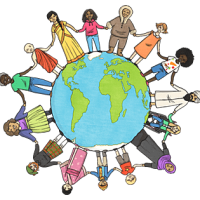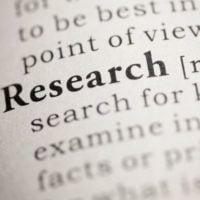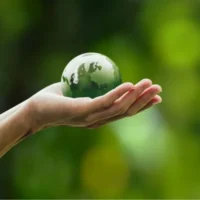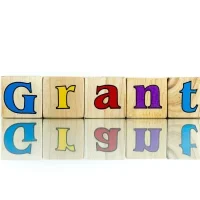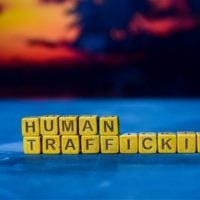Global partnerships are as diverse as the themes and geographic regions are in the realm of development. In the two parts of this article, Part I brought out certain thematic areas and geographies while the current Part II covers some more areas of interest to NGOs spread out across the globe. Global partnerships are emerging everywhere and in every area of human enterprise. So, it will not be appropriate to say that the partnerships cited in the two articles are all-embracing. Nevertheless, they set the tone for probing further into this promising arena of cooperation and collaboration which is gaining strength and acceptance all over the world. Pooling and sharing of dwindling resources are encouraged by the donors who are themselves entering into consortia and alliances.
Presented below are some newer instances of Global partnerships in addition to those covered in Part I.
SNAPP is a collaboration between three partners: The Nature Conservancy (TNC), The Wildlife Conservation Society (WCS) and The National Centre for Ecological Analysis and Synthesis (NCEAS) at the University of California Santa Barbara. SNAPP envisions a world where protecting and promoting nature works in concert with sustainable development and improving human well-being.
SNAPP selects its multi-disciplinary teams through a rigorous proposal process, and then provides them with funding, computational and logistical support. It has engaged more than 300 institutions and 600 multi-disciplinary experts from 40 countries.
You can join SNAPP as a partner organization by writing to the Deputy Director on how to join as a partner organization. You can also apply through their annual call for proposals. Next round for proposals will open in February or March 2021.
Asia Indigenous Peoples Pact is committed to the cause of promoting and defending indigenous people’s rights and articulating issues of relevance to indigenous people. At present, AIPP has 47 members from 14 countries in Asia with 18 indigenous peoples’ national alliances and 30 local and sub-national organizations. Of these, 16 are ethnic-based organizations, 6 indigenous women, 4 are indigenous youth organizations and one organization of indigenous persons with disabilities.
One of the goals of AIPP is to promote and protect the integrity of environment and to enhance the sustainable resource management systems of indigenous people including their traditional knowledge, food security and biodiversity by having full control over their land, territories and resources. It aims at developing programs to conduct systematic documentation of various issues of indigenous people for policy advocacy, awareness raising and information dissemination.
Environment program addresses the issues relating to climate change, biodiversity and indigenous knowledge promotion and protection. In particular, forest conservation under the Reducing Emissions on Deforestation and Degradation (REDD) and climate change adaptation at the community level, and sustained advocacy with REDD+ and climate change related bodies. UNFCCC and CBD are the focus of this program in partnership with member organizations and network.
INTRAC aims to strengthen the effectiveness of civil society to challenge poverty and inequality, empower people to gain greater control over their own future. To achieve this mission, INTRAC adopts the following strategies:
- Influence policy related to civil society
- Cutting edge capacity building and advisory services
- Expanding training opportunities for individuals working with CSOs
- Promoting learning and innovation across key themes for support to civil society. Diverse forms of civil society here span NGOs, Foundations, private sector and research institutions.
Thematic areas are: civil society policy & development; civil society sustainability; organizational capacity building; monitoring, evaluation and learning; program strategy & design.
Working to improve lives in Latin America and the Caribbean through financial and technical support for countries aiming to reduce poverty and inequality. Provides loans, grants and technical assistance and to conduct extensive research.
The Bank’s current focus areas include three development challenges – social inclusion and equality, productivity and innovation, and economic integration. Three cross-cutting issues are: gender equality and diversity, climate change and environmental sustainability, and institutional capacity development, and the rule of law.
The Bank emphasises the importance of partnerships to financing the 2030 Agenda (SDGs). They work with governments, companies, academia, foundations and others. In the past three years, an annual average of $4 billion have been mobilized to projects that improve lives in the region.
The IADB can help you by:
- Connecting you with IADB initiatives that are aligned with your development priorities
- Working with you from start-to-finish on partnership ideas
- Helping you to identify synergies and forge connections with their partnership network
- Developing knowledge sharing mechanisms
Wi-Connect is the platform that connects the organizations working in the region with governments, civil society organizations and/or private sector. You can access scholarships, grants and enhance visibility for your organization among potential partners and/or donors.
Envisions a world free of violence against women (VAW), violence against children (VAC) and other forms of violence stemming from inequality. SVRI is committed to increasing and strengthening action-oriented research to improve and expand VAW and VAC prevention globally. To this effect, it supports and funds research on VAW and VAC in low- and-middle-income countries. Strengthening capacity for quality policy relevant research is one of the objectives, besides raising awareness and advocacy with donors and decision makers.
Childhood sexual abuse, conflict and post-conflict HIV traditional harmful practices are among the priority areas for research. Global reach of the program is through the networks established, as given below:
- Africa Regional SGBV Network: includes 8 countries in the East Horn and Great Lakes Region (Djibouti, Ethiopia, Rwanda, South Sudan, Sudan, Tanzania, Uganda and Zambia).
- Child to Child: an international child rights agency training global agencies in approaches that enable children to play a meaningful role in their own lives and to promote health, education and well-being of themselves and their communities.
- GBV Prevention Network: is active in 18 different countries in the Horn, East and Sothern Africa to build a just and violence-free world for women.
- We Will Speak Out: is a global coalition of Christian-based NGOs, churches and organizations committed to empowering women and girls, and ensuring that the voices of survivors of sexual violence – women, girls, men and boys are addressed.
Research grants range from $ 40,000 to 200,000 over two-year period. NGOs and organizations from low-and-middle-income countries are eligible to apply, inclusive of countries from Europe and Central Asia, East Asia and Pacific, Latin America and Caribbean, Middle East and North Africa as well as South Asia.
With more than 100 women’s funds and foundations engaged, Women’s Funding Network is the largest philanthropic network in the world devoted to women and girls spanning 14 countries. The mission is to bring together the financial power and influence of funders of gender equity in order to address and solve critical and complex social issues. Members of this philanthropic network include grant makers, non-profit organizations, corporations and individuals that invest in and support projects and programs which promote and serve women, girls and their communities.
Please note that Women’s Funding Network does not accept funding requests. It provides platform for strengthening your work and opportunities for collective action on the big issues that matter most to women and girls around the world.
Support for ‘Civil Society Enterprise’ partnerships engaged in sustainable Development Goals (SDGs) in developing countries, financed by the Belgian Directorate -general for Development (DGD). Business Partnership Facility (BPF) awards subsidies to support and develop private sector involvement in SDGs in developing countries. BPF supports entrepreneurial partnerships from civil society organizations in the areas below:
Social Impact: creation and maintenance of jobs, improvement in average income for families with low income, access to affordable goods and services for low income groups (by gender), inclusion and economic development of women and young people with low income, reducing CO2 emissions and preserving biodiversity etc.
Economic Viability: partnerships must clearly explain how supported initiatives will become sustainable, present a competitive financial performance and show signs of potential scalability and replicability.
Selected projects receive non-refundable funding between Euro 50,000 to 200,000. The partnership receiving support must demonstrate that it provides an amount equal to or more than the amount received.
There is a budget of Euro 12 million available to support projects during five years. Project proposals can be submitted via the website of KBF when a call for projects is open. Projects must contribute to achieving one clearly identified SDG. Applicants from civil society, academia and/or private sector are eligible. Partnership must comprise at least one organization from the for-profit private sector.
UN Partner Portal is a joint initiative of UNICEF, UNHCR, WFP and UNFPA. It is a platform for civil society organizations to engage with UN on partnership opportunities for the benefit of those they serve. The Portal is designed to facilitate a harmonized, efficient and easy collaboration between the UN and partners.
Non-governmental organizations, community-based organizations and academic institutions interested in partnering with the UN agencies are encouraged to register to introduce themselves and their mission, structure, and experience to UN. To register, partner will be required to complete a detailed organizational profile along with documents required. Upon registration, concept notes can be submitted to UN agencies for funding consideration. CSO partners can view and apply for Call for Expression of Interest (CFEI) posted by UN agencies for potential partnerships.
Mission of PTF is to advance innovative citizen-led approaches to improve governance, increase transparency, promote the rule of law and reduce corruption in developing and emerging countries. Local civil society organizations (CSOs) are enabled to acquire knowledge, skills, abilities and tools to campaign effectively for reform and to encourage government agencies to respond constructively to the demands of citizens. This is done through:
- Technical Assistance: connecting experts with local leaders to jointly develop plans, support implementation and evaluate impact.
- Networking: linking organizations with similar goals
- Knowledge & Learning: sharing lessons learnt and publishing findings to advance collective understanding on governance challenges.
- Project Funding & Management: providing grants accompanied by technical assistance to CSOs undertaking good governance and anti-corruption projects.
PTF works through four affiliates:
- PTF Europe, based in Germany
- PTF Asia, based in the Philippines,
- PTF India, based in New Delhi
- PTF Africa, based in South Africa
These affiliates are legally independent, but closely integrated for better understanding of local cultures and issues.
Partners are likeminded international and national NGOs working in areas of good governance and development.



